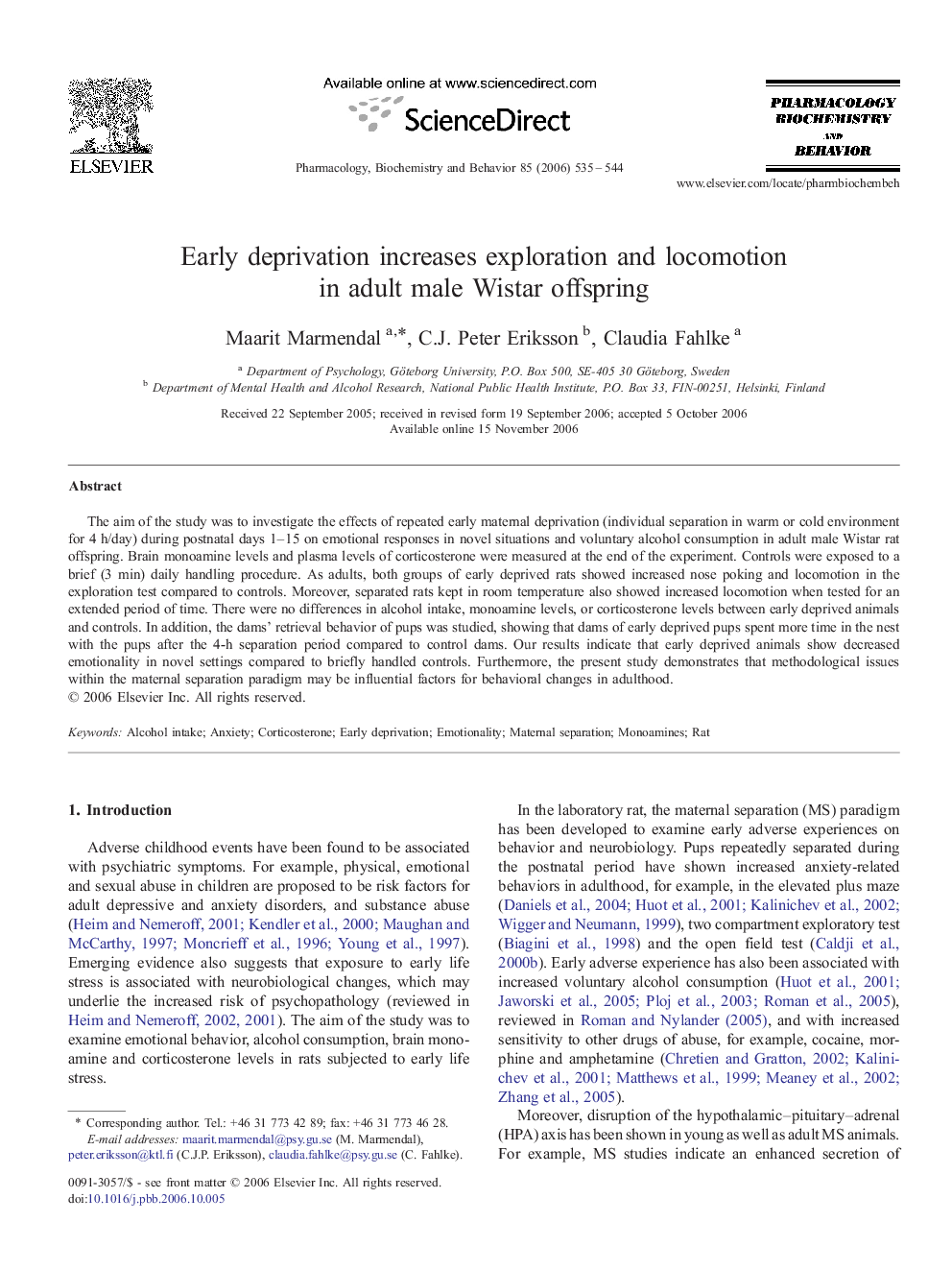| Article ID | Journal | Published Year | Pages | File Type |
|---|---|---|---|---|
| 2014370 | Pharmacology Biochemistry and Behavior | 2006 | 10 Pages |
The aim of the study was to investigate the effects of repeated early maternal deprivation (individual separation in warm or cold environment for 4 h/day) during postnatal days 1–15 on emotional responses in novel situations and voluntary alcohol consumption in adult male Wistar rat offspring. Brain monoamine levels and plasma levels of corticosterone were measured at the end of the experiment. Controls were exposed to a brief (3 min) daily handling procedure. As adults, both groups of early deprived rats showed increased nose poking and locomotion in the exploration test compared to controls. Moreover, separated rats kept in room temperature also showed increased locomotion when tested for an extended period of time. There were no differences in alcohol intake, monoamine levels, or corticosterone levels between early deprived animals and controls. In addition, the dams' retrieval behavior of pups was studied, showing that dams of early deprived pups spent more time in the nest with the pups after the 4-h separation period compared to control dams. Our results indicate that early deprived animals show decreased emotionality in novel settings compared to briefly handled controls. Furthermore, the present study demonstrates that methodological issues within the maternal separation paradigm may be influential factors for behavioral changes in adulthood.
